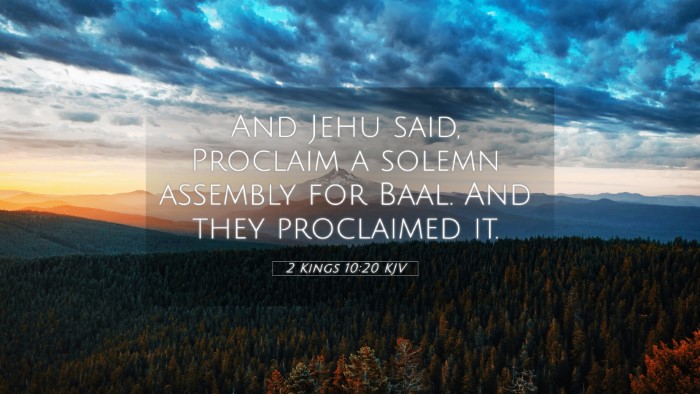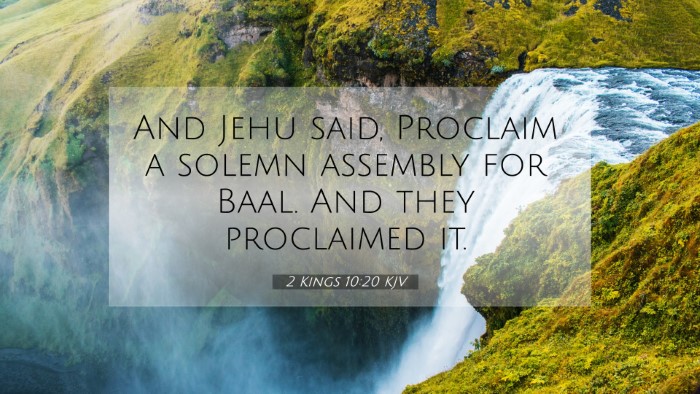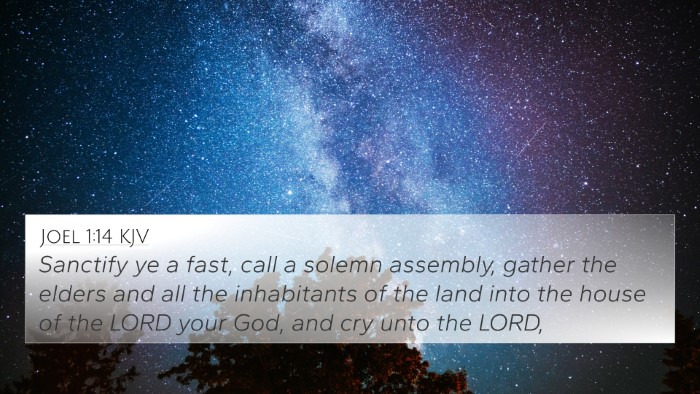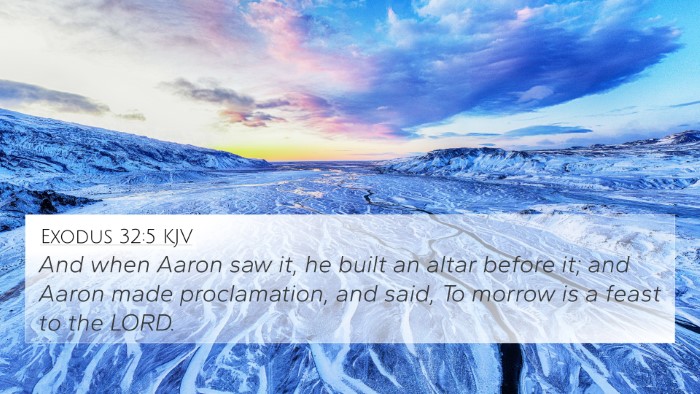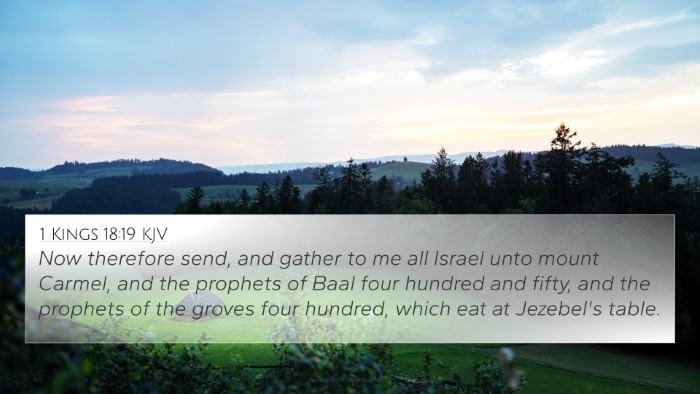Understanding 2 Kings 10:20
Bible Verse: 2 Kings 10:20 - "And Jehu said, Proclaim a solemn assembly for Baal. And they proclaimed it." (KJV)
Summary of the Verse's Meaning
This verse marks a pivotal moment in the narrative of Jehu's reign over Israel. Jehu, having been anointed king, is depicted as taking decisive action against the worship of Baal, a prevalent religion among the Israelites. The command to summon an assembly in the name of Baal serves a dual purpose: it seeks to draw in the worshippers of Baal and set the stage for the eradication of this idolatry.
Commentary Insights
Matthew Henry's Commentary
Matthew Henry highlights Jehu's cunning strategy in proclaiming a solemn assembly for Baal. Acknowledging the depth of idolatry in Israel, Henry notes that Jehu's intention is both to expose the leaders of Baal's worship and to eliminate their influence. The assembly serves as a trap, luring the counterfeit worshippers to their doom, thereby purging the nation of idolatry.
Albert Barnes' Commentary
Albert Barnes emphasizes the deceptive nature of Jehu's proclamation. He points out that Jehu was aware of Baal's followers and their numbers, indicating that this gathering would be significant. The assembly represents a moment of confrontation between true worship and idolatry, showcasing Jehu's role as an agent of God’s judgment against Baal worship.
Adam Clarke's Commentary
Adam Clarke elaborates on the cultural context of Baal worship in ancient Israel. Clarke explains that this idolatry was deeply ingrained in society, making Jehu's actions both dangerous and necessary. The assembly is crucial, as it not only signifies Jehu's commitment to cleansing Israel but also demonstrates the severity of God’s judgment as He uses Jehu to fulfill prophetic word against idol worship.
Cross-References
This verse connects to numerous other scriptures that explore themes of idolatry, divine judgment, and the covenantal relationship between God and Israel. Below is a list of relevant cross-referenced Bible verses:
- 1 Kings 18:21 - Elijah confronts the people about their divided loyalties between God and Baal.
- 2 Kings 10:28 - Jehu destroys Baal out of Israel, highlighting the fulfillment of his directive.
- Deuteronomy 13:1-5 - God's command to eliminate false prophets and idol worshippers.
- Hosea 10:2 - An admonition against empty worship and the perils of idolatry.
- Jeremiah 44:3 - A reflection on the consequences of Idolatry and the rejection of God's commands.
- Exodus 20:3-5 - The commandment prohibiting the worship of other gods.
- 2 Chronicles 23:16 - Jehoiada’s covenant to serve the Lord and purge Baal from Israel.
Thematic Connections
The theme of idolatry resonates throughout the Scriptures, where God's people are repeatedly called to remain faithful to Him. Jehu’s actions in 2 Kings also parallel God's overarching narrative of purifying His people from the influences of surrounding nations and false gods.
Tools for Bible Cross-Referencing
Understanding the connections between Bible verses such as 2 Kings 10:20 can be aided by various tools and methods:
- Utilizing a Bible Concordance to identify keywords and themes.
- Employing a Cross-Reference Bible Study guide to explore related verses.
- Accessing Bible reference resources that provide thematic outlines.
Interpreting Biblical Themes through Cross-References
By cross-referencing scriptures, one can uncover deeper insights into the narrative of Jehu and the broader context of idolatry in Israel. Such analysis can facilitate a more profound understanding of how Biblical themes interconnect.
SEO Keywords
The exploration of 2 Kings 10:20 creates numerous avenues for searching biblical truths and engaging in comparative Bible verse analysis. Related topics include:
- How to find cross-references in the Bible
- Identifying connections between Old and New Testament
- Bible verses related to idolatry
Conclusion
In summary, 2 Kings 10:20 serves as a significant verse illustrating Jehu’s role in eradicating Baal worship in Israel. The insights from various commentaries shape our understanding of the gravity of his actions, while cross-referencing related scriptures enriches the study of how God’s people engaged with idolatry throughout biblical history.

